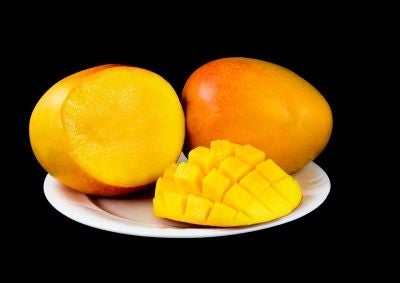Your support helps us to tell the story
From reproductive rights to climate change to Big Tech, The Independent is on the ground when the story is developing. Whether it's investigating the financials of Elon Musk's pro-Trump PAC or producing our latest documentary, 'The A Word', which shines a light on the American women fighting for reproductive rights, we know how important it is to parse out the facts from the messaging.
At such a critical moment in US history, we need reporters on the ground. Your donation allows us to keep sending journalists to speak to both sides of the story.
The Independent is trusted by Americans across the entire political spectrum. And unlike many other quality news outlets, we choose not to lock Americans out of our reporting and analysis with paywalls. We believe quality journalism should be available to everyone, paid for by those who can afford it.
Your support makes all the difference.Men who consume antioxidant-rich foods like carrots, sweet potatoes and mangos have healthier sperm, which can help their baby-making abilities, according to the latest research out of the University of Western Australia.
The study, published July 18 in the journal Ecology Letters, found that the best defense against sperm damage was the combination of two powerful antioxidants: vitamin E and beta-carotene.
The study, which was performed on crickets, suggests that dietary intake of foods like cantaloupe, carrots, apricots, pumpkin and mangos - orange-colored foods rich in beta-carotene - and almonds, soybean oil, and broccoli, which are rich in vitamin E, could help maintain healthy sperm in men.
To carry out their hypothesis, scientists used crickets to pit the sperm of several different males in direct competition to fertilize the female's egg - some were put on antioxidant-rich diets, and others went deprived.
In the animal kingdom it's typical for females to have the sperm of several males inside them at any given time, said researcher Leigh Simmons. In their experiment, the antioxidant-fueled sperm proved to be faster swimmers.
"It is fair to say that the sperm are at war within the female, and we can expect that the most competitive sperm will win the race to the egg," Simmons said. "Our study showed that the sperm of males who were fed antioxidants were easily able to outclass the sperm of rival males who were deprived of antioxidants."
The Australian study follows on the heels of another review published in January in The Cochrane Library, which also found that men with low sperm counts or sperm mobility who took oral antioxidants like vitamin E, zinc and magnesium improved their chances of impregnating their partner.
Foods rich in vitamin E: almonds, wheat germ, safflower, corn and soybean oils; mangos, nuts, broccoli
Foods rich in beta-carotene: orange foods like sweet potatoes, carrots, cantaloupe, squash, apricots, pumpkin, and mangos, as well as leafy green vegetables like collard greens, spinach and kale.
http://www.news.uwa.edu.au/201107183745/international/study-finds-antioxidants-boost-male-fertility

Join our commenting forum
Join thought-provoking conversations, follow other Independent readers and see their replies
Comments